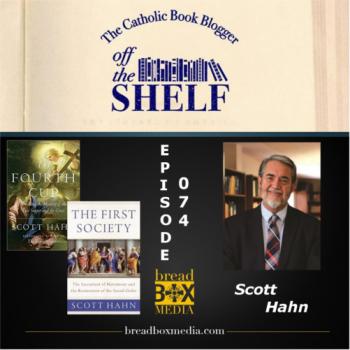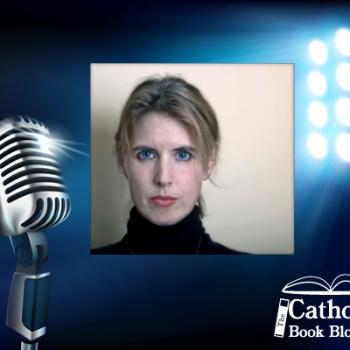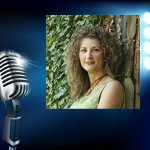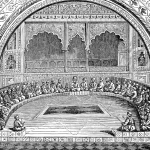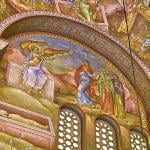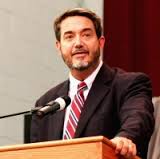 I am admittedly a bit fanboy here but this week I have the pleasure of sharing my recent interview with Dr. Scott Hahn.
I am admittedly a bit fanboy here but this week I have the pleasure of sharing my recent interview with Dr. Scott Hahn.
PETE: Your new book Consuming the Word, spends some time on the Church Fathers. What lessons do they teach that you feel are the most important for our Church today?
SCOTT HAHN: The Church always speaks of the Fathers as witnesses. They witness to the Apostolic Tradition, the faith handed on by the Apostles. It was the Fathers who produced the canon of Scriptures, and it was the Fathers who instructed the Church in the methods of biblical interpretation employed by Jesus and the Apostles. Their witness is invaluable because it protects us from our tendency to temporal provincialism. We carry within us the presuppositions of our age, and we unconsciously impose them on other ages. The Fathers help us to see the Scriptures with fresh eyes — the eyes of the ancients, the eyes that first looked upon the Word made flesh. Likewise, by referring to these witnesses as “Fathers,” we remind ourselves that, as Catholics, we are members of a family, a divine family, one that spans the centuries, and includes every nation and tribe on earth, just as it reaches from earth all the way into heaven, which is where the Fathers are very much alive, even now, and praying for us.
PETE: Continuing with the theme of Church Fathers, do you have a particular favorite and are there any writings of the Church Fathers you recommend?
SCOTT HAHN: I love them all. In my work I return again and again to St. Irenaeus, for his covenantal approach to salvation history, along with his emphasis on the unity of the Old and New Testaments. Living in the second century, he received the faith from St. Polycarp, who had received it from the Apostle John. So his pedigree and his authenticity are unimpeachable. His work, moreover, is sealed in a sense and authenticated by his martyrdom.
I’m also utterly dependent on the great figures of the fourth and fifth centuries, St. Jerome and St. Augustine, because they taught me an integrated approach to Scripture — a reading that took into account both the literal and spiritual senses, along with the coordination of biblical exegesis and doctrine, as well as liturgy and life.
PETE: What are the highlights in Consuming the Word that you really want readers to sit up and take notice to?
SCOTT HAHN: The New Testament was a sacrament long before it was a document, and the document itself testifies to this fact. Indeed, the only time Jesus ever spoke of “the new covenant/testament” is when he’s instituted the Eucharist (Luke 22:20); and then he commanded his disciples to “do this” – not “write this” – and by “this,” he clearly meant the Eucharist, that is, “the New Testament,” which is precisely what the disciples went about doing for the rest of their lives.
I believe this can be a breakthrough in our dialogue with other Christians who want to follow the New Testament, but who aren’t Catholic – yet.
I demonstrate this painstakingly in the book, with abundant evidence from Scripture and the early Fathers. When you look at the life of the early Church, you see that Scripture and liturgy were inseparable for the first Christians. They should be inseparable for Christians today as well. When one is lost, both are lost. It is in light of each that we understand the other.
PETE: You have written many books, all of which have been well received by the Catholic community. Are there any particular titles you would recommend as “must reads” for those wishing to further understand their Catholic Faith?
SCOTT HAHN: Consuming the Word is a watershed for me, and I think of it as a summary work. If this book defines me, I’ll be happy. But it builds upon certain works that came before, especially The Lamb’s Supper, Letter and Spirit, and Swear to God. For those wishing to go deeper, I would also recommend my more academic works, particularly Kinship by Covenant, The Kingdom of God as Liturgical Empire, and Covenant and Communion: The Biblical Theology of Pope Benedict XVI.
PETE: Are there any books besides your own that you would recommend on the subject of the Church Fathers?
SCOTT HAHN: For those starting out, I recommend Mike Aquilina’s The Fathers of the Church, and for those who are ready to go a little deeper, Robert Louis Wilken’s The Spirit of Early Christian Thought.
PETE: What topic would you like to cover that you have not yet written a book on?
SCOTT HAHN: Don’t get me started. I have a long list of books I want to produce if God gives me the years and the energy.
PETE: Time for my signature ending question. This is a blog about books. What is currently on your bookshelf to read?
SCOTT HAHN: This summer I’m hoping to get through the following six titles, at least: Pope Benedict’s A SCHOOL OF PRAYER: THE SAINTS SHOW US HOW TO PRAY, Brad Gregory’s THE UNINTENDED REFORMATION, John Baptist Ku’s GOD THE FATHER IN THE THEOLOGY OF ST. THOMAS AQUINAS, Mary Eberstadt’s HOW THE WEST REALLY LOST GOD, Robert Spencer’s NOT PEACE BUT A SWORD: THE GREAT CHASM BETWEEN CHRISTIANITY AND ISLAM, and Ryan Topping’s REBUILDING CATHOLIC CULTURE: HOW THE CATECHISM CAN SHAPE OUR COMMON LIFE.






